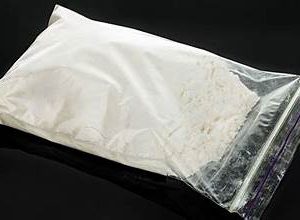PRODUCT DESCRIPTION
Morphine
Morphine is a potent opioid analgesic medication commonly used for the management of moderate to severe pain. It is derived from the opium poppy plant and is classified as a Schedule II controlled substance due to its high potential for abuse and dependence. Morphine acts primarily on the central nervous system to alleviate pain by binding to opioid receptors in the brain and spinal cord.
FAQs (Frequently Asked Questions):
1. What is Morphine? Morphine is a powerful opioid medication prescribed for the relief of moderate to severe pain, such as that associated with surgery, injury, or certain medical conditions. It is one of the oldest and most effective pain-relieving medications available and is commonly used in both medical and palliative care settings.
2. How is Morphine used? Morphine is typically administered orally in tablet or liquid form, although it can also be given via injection, intravenously, intramuscularly, or subcutaneously for faster onset of action. Morphine is available in various formulations, including immediate-release and extended-release formulations designed to provide around-the-clock pain relief.
3. What are the effects of Morphine? Morphine produces a range of effects, including pain relief, sedation, euphoria, and respiratory depression. It acts centrally on the brain and spinal cord to alter the perception of pain and induce feelings of relaxation and well-being. Common side effects may include constipation, nausea, vomiting, dizziness, and drowsiness.
4. What are the risks of Morphine use? While morphine is highly effective for pain management when used appropriately, it carries significant risks, particularly when misused or abused. These risks include respiratory depression, overdose, addiction, tolerance, dependence, and withdrawal symptoms upon cessation of use. Long-term use of morphine may also lead to physical and psychological dependence and require careful monitoring by healthcare professionals.
It’s essential to emphasize that morphine should only be used under the supervision of a qualified healthcare professional and according to prescribed dosage guidelines. Misuse or abuse of morphine can lead to severe health consequences, including addiction and overdose. If you or someone you know is struggling with opioid use, seeking help from healthcare professionals or addiction treatment specialists is crucial.
| Quantity | 15mg x 100pills, 15mg x 200pills, 15mg x 300pills, 30mg x 100pills, 30mg x 200pills, 30mg x 300pills, 60mg x 100pills, 60mg x 200pills, 60mg x 300pills |
|---|
Be the first to review “Morphine” Cancel reply
Related products
Synthetic Drugs
Synthetic Drugs
Synthetic Drugs
Synthetic Drugs
Synthetic Drugs
Synthetic Drugs










Reviews
There are no reviews yet.